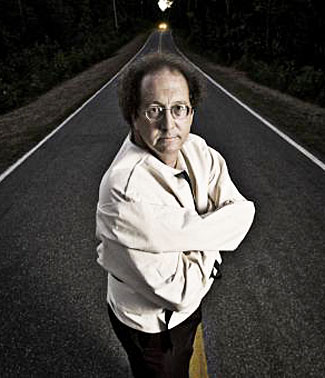Duke University philosophy scholar Walter Sinnott-Armstrong explores moral psychology in the final installment of Lawrence University’s five-part Liberal Arts in the Century of the Brain series.

Sinnott-Armstrong, Chauncey Stillman Professor of Practical Ethics in the department of philosophy and the Kenan Institute for Ethics at Duke, presents “Are Psychopaths Responsible” Tuesday, April 12 at 11 a.m. in Stansbury Theatre of the Music-Drama Center. A question-and-answer session follows the presentation.
In conjunction with his talk, on Monday, April 11 at 7 p.m. in the Warch Campus Center cinema, Sinnott-Armstrong will show a filmed interview with an imprisoned psychopath and discuss the nature of psychopathy and its moral implications. Both events are free and open to the public.
Psychopaths make up less than one percent of the population, but they commit more than 40 percent of violent crimes. Some research suggests they do not understand the immorality of their acts. In his presentation, Sinnott-Armstrong will discuss whether such individuals should be held legally or morally responsible if they don’t comprehend their acts, and if not, how should society dealt with them.
Sinnott-Armstrong, whose scholarship interests include neuroethics, is the author of several books, including 2009’s “Morality Without God?” and “Moral Skepticisms.” His current research focuses on moral psychology and brain science, as well as uses of neuroscience in the legal system.
Launched last fall, the Liberal Arts in the Century of the Brain series incorporated the interdisciplinary areas of neuroscience and cognitive science to create connections with other disciplines at Lawrence.
About Lawrence University
Founded in 1847, Lawrence University uniquely integrates a college of liberal arts and sciences with a nationally recognized conservatory of music, both devoted exclusively to undergraduate education. It was selected for inclusion in the book “Colleges That Change Lives: 40 Schools That Will Change the Way You Think About College” and Fiske’s Guide to Colleges 2016. Engaged learning, the development of multiple interests and community outreach are central to the Lawrence experience. Lawrence draws its 1,500 students from nearly every state and more than 50 countries.